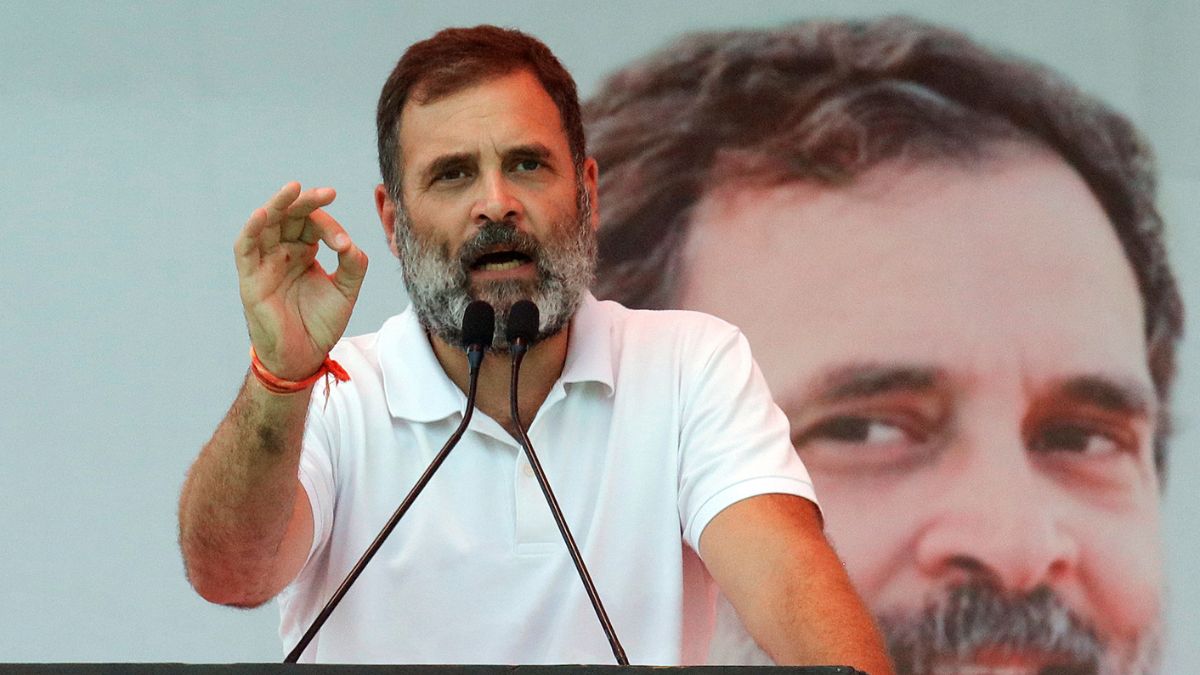The recent postponement of a Parliament’s Public Accounts Committee (PAC) meeting, due to the absence of SEBI Chairperson Madhabi Puri Buch, has sparked significant political controversy. Rahul Gandhi, leader of the opposition, openly questioned Buch’s reluctance to appear before the committee, suggesting a deliberate attempt to shield her from accountability. This incident highlights a broader conflict between the opposition’s demand for transparency and the government’s apparent efforts to protect regulatory bodies. The ensuing accusations and counter-accusations, particularly regarding the propriety of the PAC’s proceedings, reveal deep divisions within the Parliament and raise crucial questions about the effectiveness of oversight mechanisms. This incident underscores the complexities of parliamentary proceedings and the inherent tensions between political parties when it comes to scrutinizing governmental bodies and their leaders.
The PAC Meeting Postponement and its Aftermath
The unexpected absence of SEBI Chairperson Madhabi Puri Buch from the scheduled PAC meeting led to its postponement. Congress leader KC Venugopal, the PAC chairman, explained that Buch informed him of her inability to travel to Delhi on the morning of the meeting. He cited this as the reason for the postponement, emphasizing his consideration for Buch’s situation. However, this explanation has been met with skepticism by the opposition BJP.
Conflicting Narratives and Accusations
The BJP, led by Ravi Shankar Prasad, strongly criticized Venugopal’s handling of the situation. They questioned the PAC’s choice of subject matter and accused Venugopal of conducting the proceedings in an irregular and politically motivated manner, alleging unparliamentary conduct and a lack of due process. The BJP members further claimed that the CAG report did not contain any significant mention of SEBI which casts a shadow over the motive and importance behind calling Buch to this committee. Prasad also criticized Venugopal for discussing the meeting’s proceedings with the media. This highlights a major disagreement over procedural issues and the appropriateness of actions undertaken by the PAC and Venugopal in particular. The BJP plans to formally register a complaint against Venugopal with the Lok Sabha Speaker, escalating the already charged atmosphere.
Rahul Gandhi’s Accusations and the Question of Accountability
Rahul Gandhi’s strong statements on X directly questioned the reasons behind Buch’s absence and implied a cover-up. His post suggested that powerful forces were working to prevent Buch from answering the PAC’s questions. This adds a significant political dimension to the incident, shifting the focus from mere procedural issues to allegations of political interference in regulatory matters. The pointed nature of his criticism escalates the conflict beyond a simple procedural issue and points towards broader concerns around accountability and transparency in government agencies.
Implications for Transparency and Oversight
Gandhi’s accusations raise crucial concerns about transparency and accountability within governmental institutions. The incident has put the effectiveness of parliamentary oversight under the microscope. If powerful individuals or entities can influence regulatory bodies and prevent their leaders from facing scrutiny, it erodes public trust in the democratic process. This suggests the system designed to uphold transparency is at risk and could be at the whim of powerful individuals and/or political agendas.
SEBI’s Response and Prior Allegations
While the SEBI chairperson did not explicitly offer her reason, earlier this year, Buch and her husband released a joint statement that denounced recent allegations made against them as “false, incorrect, malicious and motivated”, further asserting that their income tax returns were obtained illegally and fraudulently by their accusers.
Contextualizing the Controversy
This statement, coupled with the current controversy, paints a more complicated picture than initially perceived. It brings into question the motives behind the call to Buch and could possibly signal a greater underlying issue to be investigated. Furthermore, it underscores a deeper clash between political aims and impartial regulatory processes. The need to verify such statements from impartial sources further highlights this need for deeper scrutiny.
The Broader Political Implications
The conflict extends beyond the specific individuals involved. It reflects a larger power struggle between the ruling and opposition parties in India. The accusations of political interference, coupled with concerns about due process and procedural fairness, represent a serious challenge to the functioning of democratic institutions. The incident serves as a case study highlighting the risks and vulnerabilities within governmental oversight and transparency. The handling of this situation and its aftermath will significantly shape the public’s view of the relationship between the legislature, executive, and regulatory agencies. It calls for robust discussions on measures that can promote transparency, ensure accountability, and prevent similar conflicts in the future.
Take Away Points:
- The postponement of the PAC meeting due to SEBI chairperson’s absence has sparked a major political controversy.
- Rahul Gandhi’s accusations suggest a deliberate effort to shield SEBI from accountability.
- The BJP criticized the PAC chairman’s handling of the situation and the procedure of the meeting itself.
- The incident raises serious concerns about transparency and effectiveness of parliamentary oversight.
- The controversy highlights a deeper power struggle between political parties in India and has the potential to further damage trust and confidence in government processes.




